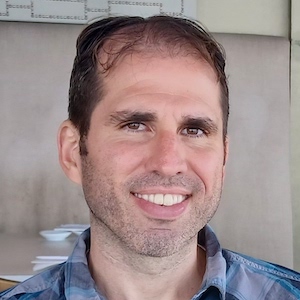Mark Wilde
Associate Professor of Physics
Ph.D., 2008 - University of Southern California
Louisiana State University
Department of Physics & Astronomy
447 Nicholson Hall, Tower Dr.
Baton Rouge, LA 70803-4001
225-578-4323-Office
mwilde@lsu.edu
Quantum Science and Technologies Group
Research Interests
Quantum Science and Theory, Quantum Information Theory, Quantum Computational Complexity Theory
What are the ultimate limits that nature imposes on communication and computation and what are effective procedures for achieving these limits? These are the questions that drive my research, and in order to answer them convincingly, we must reassess the theories of information and computation under a "quantum lens." That is, since quantum mechanics represents our best understanding of microscopic physical phenomena and since information is ultimately encoded into a physical system of some form, it is necessary for us to revise the laws of information and computation established many years ago by intellectual giants such as Shannon and Turing. This is not merely an academic exercise, but instead represents one of the most exciting new frontiers for physics, mathematics, computer science, and engineering. Entanglement, superposition, and interference are all aspects of quantum theory that were once regarded as strange and in some cases, nuisances. However, nowadays, we understand these phenomena to be features that are the enabling fuel for a new quantum theory of information and computation, in which seemingly magical possibilities such as teleportation are becoming reality. Several notable examples are computational speedups in quantum computing, increased communication capacities of noisy communication channels, secure encryption based on physical principles, and enhanced precision in measurements. Concepts developed in the context of quantum information theory are now influencing other areas of physics as well, such as quantum gravity, condensed matter, and thermodynamics. Furthermore, quantum information theory has given us a greater understanding of the foundations of quantum mechanics and might eventually lead to a simpler set of postulates for quantum mechanics.
Textbook
- Mark M. Wilde, "Quantum Information Theory," Cambridge University Press, 669 pages, June 2013.
Current and Select Publications
- Mark M. Wilde, "Sequential decoding of a general classical-quantum channel," Proceedings of the Royal Society A 469, 2157, page 20130259 (September 2013).
arXiv:1303.0808 - Patrick Hayden, Kevin Milner, Mark M. Wilde. "Two-message quantum interactive proofs
and the quantum separability problem," Proceedings of the 28th IEEE Conference on
Computational Complexity, pages 156-167, Palo Alto, California, June 2013.
arXiv:1211.6120 - Mark M. Wilde, Patrick Hayden, Saikat Guha. "Information trade-offs for optical quantum communication," Physical Review Letters 108, 140501 (2012).
arXiv:1206.4886 - Mark M. Wilde, Patrick Hayden, Francesco Buscemi, Min-Hsiu Hsieh. "The information-theoretic costs of simulating quantum measurements,"Journal of Physics A: Mathematical and Theoretical 45, 45, p. 453001 (2012).
arXiv:1206.4121 - Mark M. Wilde, Saikat Guha, Si-Hui Tan, Seth Lloyd. "Explicit capacity-achieving receivers for optical communication and quantum reading," Proceedings of the 2012 IEEE International Symposium on Information Theory (ISIT
2012, Cambridge, MA, USA), pages 551-555.
arXiv:1202.0518 - Todd A. Brun, Jim Harrington, Mark M. Wilde. "Localized closed timelike curves can perfectly distinguish quantum states," Physical Review Letters 102, 210402 (2009).
arXiv:0811.1209